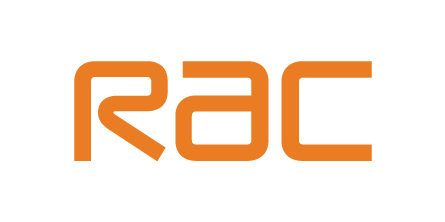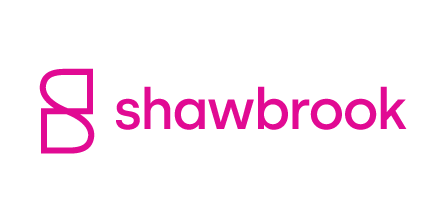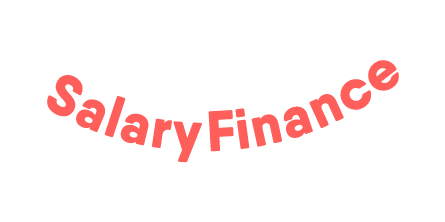What is used car finance and how does it work?
Used car finance refers to the borrowing of money to purchase a pre-owned vehicle. This type of finance option allows individuals to afford vehicles that may otherwise be out of their price range, by spreading the cost over a period of time. Usually provided by banks, credit unions, or car dealerships, these loans are paid back in monthly instalments, typically over a few years.
The process of obtaining used car finance involves evaluating your credit score, determining the loan amount, and negotiating the terms of the loan, such as the interest rate and repayment period. The lender will often secure the loan against the vehicle, which means if you fail to make the payments, they have the right to take possession of the car.
How to secure used car finance
To secure used car finance, start by checking your credit score to understand your financing options. Then, research and compare loan offers from multiple lenders to find the best interest rates and terms. Apply for pre-approval to gauge what you can afford and strengthen your negotiating position. Finally, when selecting a vehicle, ensure it meets the lender’s requirements regarding age and mileage. Negotiate the price of the car before finalising the loan agreement to ensure you’re getting a fair deal.
Is getting used car finance the right option for me?
Used car finance can be a viable choice for individuals who wish to purchase a used car without paying the entire purchase price upfront. This financing option allows you to divide the cost into manageable monthly payments over an agreed-upon period. By opting for used car finance, you can acquire the vehicle you desire while preserving your savings for other financial obligations or unexpected expenses.
However, determining whether using car finance is the right option for you depends on various factors. Firstly, assess your financial situation to ensure that you have a stable income and can comfortably afford the monthly repayments. Consider your credit score as well, as it can impact the interest rates and loan terms you may qualify for. It’s crucial to carefully review the terms and conditions of the loan, including interest rates, repayment duration, and any additional fees.
Advantages & disadvantages of used car finance
Used car finance offers several advantages. By spreading the cost of the vehicle over a specified period, it enables you to become a car owner sooner. The flexibility of choosing the loan amount and repayment period allows you to tailor the financing to your specific budgetary needs. Furthermore, used car finance may provide the opportunity to purchase a higher-quality or more dependable vehicle compared to what you could afford if paying outright.
Used car finance comes with its share of disadvantages. One drawback is the potential for higher overall costs due to interest payments, making the vehicle more expensive in the long term. Another concern is the possibility of owing more on the loan than the car’s actual value, particularly if the vehicle depreciates rapidly. Falling behind on payments can have negative consequences, such as a negative impact on your credit score and even the repossession of the vehicle by the lender. It’s crucial to consider these factors before opting for used car finance.
| ✅ Immediate ownership | ❌ Increased total cost |
| ✅ Customised financing | ❌ Depreciation risk |
| ✅ Better vehicle access | ❌ Payment default risks |
Frequently asked questions about used car finance
What is the process to apply for used car finance?
The process to apply for used car finance or used motorhome finance all starts when you fill out our application form. The form will require information about your personal details, employment history, income, and financial obligations.
Additionally, you may need to provide details about the specific car you intend to purchase, such as its make, model, year, and mileage. Once you’ve completed the application, submit it along with any supporting documents that may be required.
How long does the approval process take?
The approval process for used car finance can vary depending on the lender and your individual circumstances. In general, the process typically takes a few days to a couple of weeks. The lender will review your application, assess your creditworthiness, and verify the information provided. They may also conduct a credit check to evaluate your credit history and determine the risk involved in lending to you.
The timeframe for approval can also depend on the efficiency of the lender’s internal processes. Some lenders may offer a pre-approval process that provides an initial decision within a shorter period, allowing you to shop for a used car with more confidence.
What information do I need to provide for the application?
When applying for used car finance, you will typically need to provide several pieces of information. These may include your full name, address, contact details, and Social Security number. You will also need to provide details about your employment, such as your employer’s name, address, and your job position.
Income verification, such as recent pay stubs or tax returns, may be required to demonstrate your ability to repay the loan.
Also, you may need to provide information about the vehicle you wish to finance, including its identification number (VIN), mileage, and any relevant documents, such as the car’s title or registration.
How does my credit score affect my eligibility for used car finance?
Your credit score plays a significant role in determining your eligibility for used car finance. Lenders consider credit scores as an indicator of your creditworthiness and ability to repay the loan. A higher credit score generally increases your chances of being approved and may also help you secure more favourable loan terms, such as lower interest rates and a longer repayment period.
Lenders typically prefer borrowers with good or excellent credit scores, as they perceive them to be less risky. However, even if you have a lower credit score, you may still be eligible for financing, although you might encounter higher interest rates or more stringent loan terms.
Can I finance a used car with bad credit?
Yes, it is possible to finance a car with bad credit, although it can be more challenging. Having a low credit score may limit your options and result in higher interest rates or stricter terms. However, some lenders specialise in providing financing solutions for individuals with poor credit.
These lenders may consider other factors in addition to your credit score, such as your income and employment stability. It’s important to research and approach reputable lenders who specifically cater to borrowers with bad credit. Keep in mind that financing a used car with bad credit may require a larger down payment or a co-signer to improve your chances of approval and potentially secure more favourable loan terms.
What are the typical terms for used car finance?
The terms for used car finance can vary depending on the lender, your creditworthiness, and the specific car being financed. Generally, the loan terms encompass factors such as the interest rate, repayment period, and any additional fees or charges. The interest rate is typically expressed as an annual percentage rate (APR) and represents the cost of borrowing.
The repayment period typically ranges from 12 to 72 months, but it can vary. Shorter loan terms usually result in higher monthly payments but lower overall interest costs. On the other hand, longer loan terms may offer more manageable monthly payments but could result in higher overall interest payments.
Can I pay off my car loan early?
Yes, in most cases, you can pay off your car loan early. However, it’s essential to review the terms and conditions of your loan agreement. Some lenders may impose prepayment penalties or fees for early repayment, while others may allow you to pay off the loan without penalties. If you’re considering paying off your car loan early, contact your lender to understand the specific terms and any potential fees involved. Paying off the loan early can save you money on interest charges and allow you to own the car outright sooner.
What happens if I fail to make the payments on time?
Failing to make payments on time can have serious consequences. If you miss a payment or make a late payment, you may incur late fees or penalties, which can increase the overall cost of the loan. Additionally, consistent late payments can negatively impact your credit score, making it more challenging to obtain credit in the future. If you continue to miss payments, the lender may take steps to repossess the vehicle.
Repossession allows the lender to recoup their losses by taking possession of the car. It’s crucial to communicate with your lender if you’re experiencing financial difficulties to explore potential solutions, such as refinancing or modifying the loan terms.
Can I finance a used car from a private seller?
Yes, it is possible to finance a used car from a private seller, but the availability of financing options may vary. Traditional lenders such as banks or credit unions may have specific requirements or limitations when financing private party sales. However, some lenders or online platforms specialise in facilitating loans for private car purchases. It’s important to research and identifies lenders who offer this type of financing.
When financing a used car from a private seller, it’s essential to complete a thorough inspection and obtain all necessary documentation, such as the vehicle’s title and service history, to ensure transparency and protect your interests.
What are the fees associated with used car finance?
Fees associated with used car finance can include various charges depending on the lender and loan terms. Common fees may include an application fee, origination fee, documentation fee, and potentially a title transfer fee. These fees are typically added to the overall loan amount and can increase the total cost of financing.
It’s important to review the loan agreement and ask the lender for a breakdown of all associated fees before finalising the loan. Understanding the fees involved allows you to assess the true cost of financing and compare different loan offers from various lenders.











